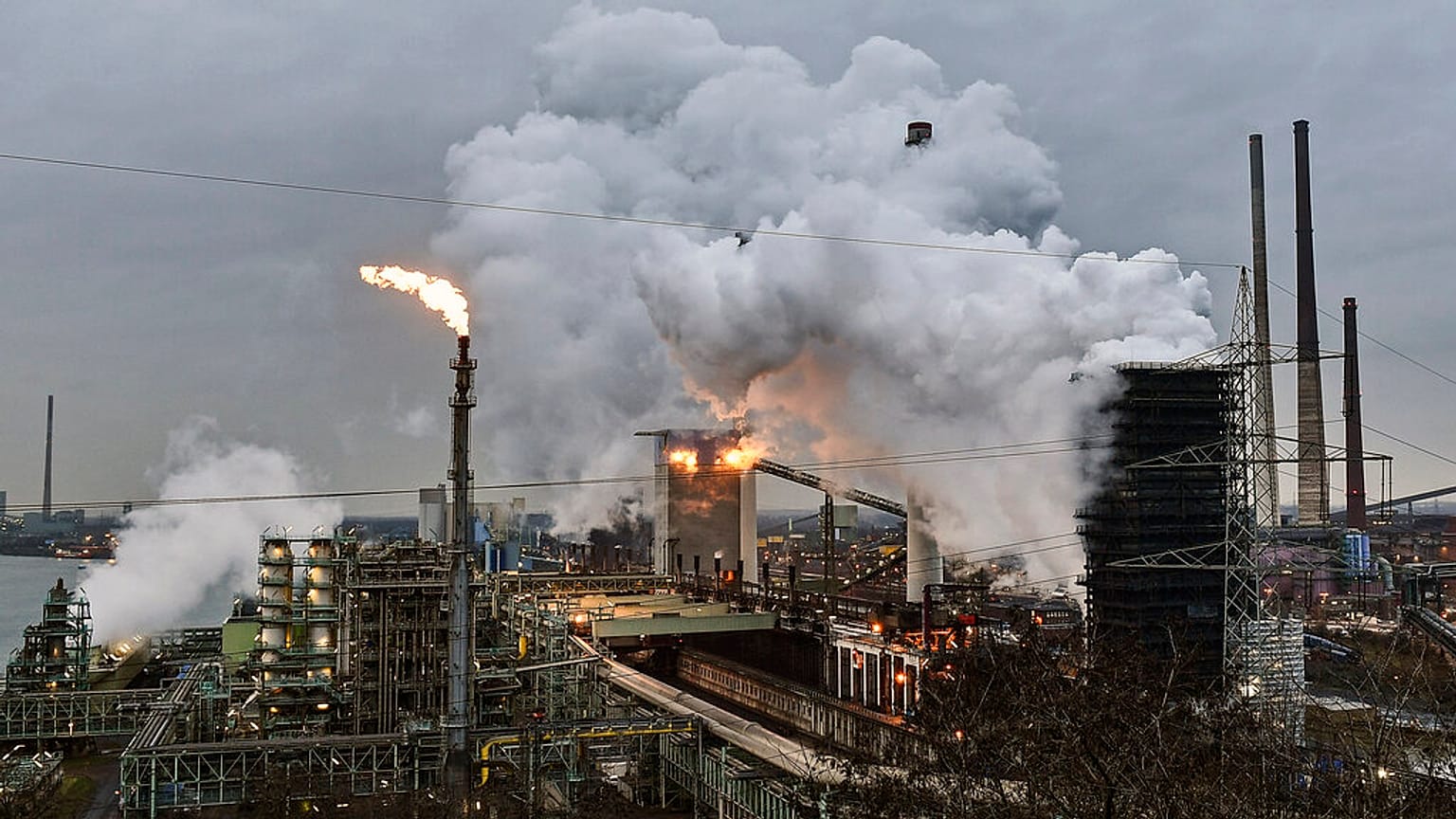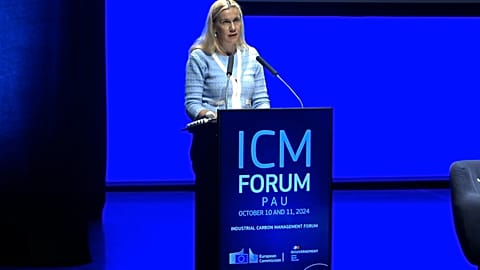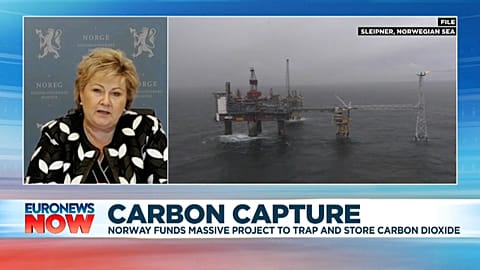The EU is pinning its climate ambition on carbon capture and storage (CCS) to prevent billions of tonnes of CO2 emissions in the coming years, but a technical hitch could delay the deployment of a technology that even its cheerleaders recognise has barely got off the ground.
EU hopes of locking tremendous volumes of CO2 underground to mitigate climate change have hit another obstacle, with big emitters warning that prospective storage operators are demanding the greenhouse gas first be purified to a point where it ceases to be economically viable.
 ADVERTISEMENT
ADVERTISEMENT
 ADVERTISEMENT
ADVERTISEMENT
The European Commission yesterday published fresh guidelines for the implementation of a CO2 Storage Directive dating back to 2009, but the trade association Carbon Capture and Storage (CCS) Europe has warned the EU executive has failed to address the issue of CO2 purity.
Director Chris Davies said the law was essential to reassure the public that CCS is a safe climate mitigation strategy, as it demands that CO2 storage facilities – typically using depleted oil and gas fields – pose no significant threat to health or the environment.
“Yet it still provides no assessment of what standards of CO2 purity are acceptable, leaving to operators to impose their own requirements,” said Davies, who as a British MEP steered the EU’s first CCS legislation through the European Parliament. More recently, lawmakers have agreed petroleum firms must develop storage sites at their own expense over the next six years.
But for heavy industry, the business case for using CCS is that is should be cheaper than paying for emissions allowances under the EU emissions trading system (ETS), currently around €66 for the equivalent of a tonne of carbon dioxide. Capturing CO2 from chimneys or during industrial processes such as cement, steel or glass production is already an energy-intensive and expensive proposition.
Davies warned that purifying it to meet the demands of storage operators, who fear substances like sulphur oxides (SOx) or even water vapour could corrode their CO2 transport and injection machinery, would lead to “a cost that may be so onerous that industry emitters continue to release CO2 into the atmosphere".
This presents another obstacle to deployment of a technology that the Commission now believes is essential to meet EU climate targets and its goal of net-zero by mid-century. Recent communications envisage a ramping up of annual storage capacity from next to nothing to 280 million tonnes by 2040 alone.
The only CCS project in Europe that is due to start operating in the coming months, Norway’s Northern Lights project, demands that liquefied CO2 delivered for permanent undersea storage be 99.81% pure, and contain no more than 10 parts per million of SOx and 30ppm of water, amongst other tight limits.
Northern Lights – a consortium of oil majors TotalEnergies, Shell and Norway’s Equinor – plans to start injecting up to 1.5 million tonnes of CO2 a year from 2025. “The objective of Northern Lights’ CO2 specifications is to prevent corrosion due to harmful elements and by such ensure process safety and technical integrity," Northern Lights director of communications Benedicte Staalesen said in a written statement, adding that "they are in line with other industry projects... and are not intended to set an industry standard as one size does not fit all."
European heavy industry is clearly worried about the issue. A source at one major energy-intensive industrial producer, who did not wish to be named, told Euronews that “excessively stringent” specifications for purity would increase costs, and that the lack of easier-to-meet purity standards set at the EU level “has the effect of slowing down the pace of development of CCS”.
Ultimately, despite the renewed interest from policy makers after a string of failed attempts to clean up coal-fired power generation over a decade ago, the problem for EU climate action is that CCS still remains a largely theoretical proposition.
“The legislation is now more than 15 years old and yet has still to be put to use,” Davies said of the directive he helped put in place. “On a commercial basis no CO2 has been injected for permanent storage within the EU since it was approved.”
This article has been updated to reflect comment from Northern Lights

















